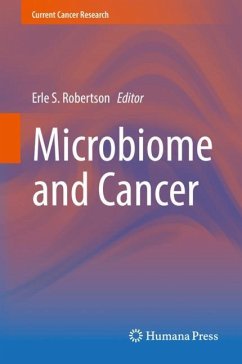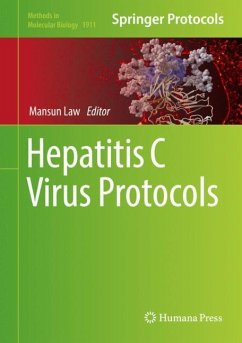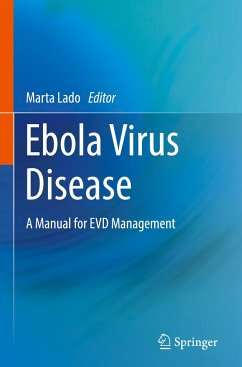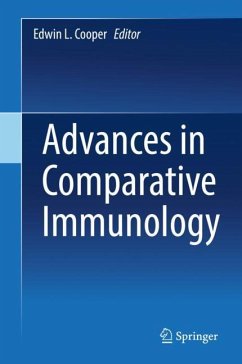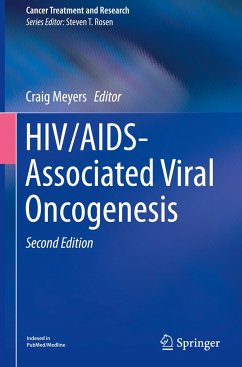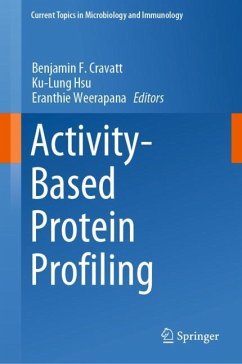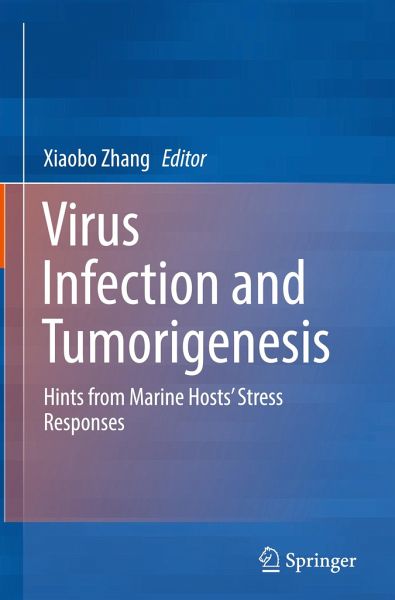
Virus Infection and Tumorigenesis
Hints from Marine Hosts' Stress Responses
Herausgegeben: Zhang, Xiaobo

PAYBACK Punkte
57 °P sammeln!
This book reviews the latest research on the molecules and mechanisms of marine host stress responses to viral infections and tumorigenesis. It offers an overview of the state of the art in the field as well as future directions.Metabolism disorder is a characteristic of tumorigenesis. Since viruses complete their life cycle in host cells, such infections cause metabolic disorders in the host. As such, the mechanisms of virus pathogenesis and tumor progression are similar or even identical. In essence, the role of antiviral molecules is to maintain the metabolic homeostasis of infected host ce...
This book reviews the latest research on the molecules and mechanisms of marine host stress responses to viral infections and tumorigenesis. It offers an overview of the state of the art in the field as well as future directions.
Metabolism disorder is a characteristic of tumorigenesis. Since viruses complete their life cycle in host cells, such infections cause metabolic disorders in the host. As such, the mechanisms of virus pathogenesis and tumor progression are similar or even identical. In essence, the role of antiviral molecules is to maintain the metabolic homeostasis of infected host cells, and the antiviral molecules induced by virus infection may play an important role in antitumor pathways, resulting in cancer cell death or restoring the disordered metabolism of cancer cells. The molecules generated during host stress responses to viruses can also contribute to the antitumor mechanisms in humans. However, the relationship between host stress responses to virus infection and tumorigenesis has not been extensively explored.
In recent years, studies have shown that marine host stress responses to viral invasion can be good models for exploring human antitumor mechanisms. Stimulating further research in the field, this book offers graduate students and researchers with comprehensive insights into host stress responses to viral invasion and tumor progression. It is also a valuable resource for those working in the pharmaceutical industry interested in drug discovery based on molecules derived from host stress responses to viral infection.
Metabolism disorder is a characteristic of tumorigenesis. Since viruses complete their life cycle in host cells, such infections cause metabolic disorders in the host. As such, the mechanisms of virus pathogenesis and tumor progression are similar or even identical. In essence, the role of antiviral molecules is to maintain the metabolic homeostasis of infected host cells, and the antiviral molecules induced by virus infection may play an important role in antitumor pathways, resulting in cancer cell death or restoring the disordered metabolism of cancer cells. The molecules generated during host stress responses to viruses can also contribute to the antitumor mechanisms in humans. However, the relationship between host stress responses to virus infection and tumorigenesis has not been extensively explored.
In recent years, studies have shown that marine host stress responses to viral invasion can be good models for exploring human antitumor mechanisms. Stimulating further research in the field, this book offers graduate students and researchers with comprehensive insights into host stress responses to viral invasion and tumor progression. It is also a valuable resource for those working in the pharmaceutical industry interested in drug discovery based on molecules derived from host stress responses to viral infection.





